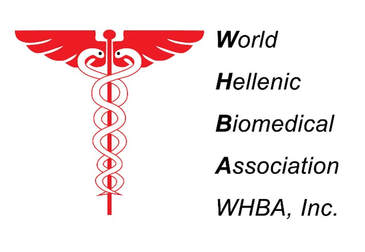

Panagiota Andreopoulou, MD
Physician, Division of Endocrinology, Weill Cornell Medicine
Assistant Professor of Clinical Medicine, Weill Cornell Medical College
Profile
Dr Panagiota Andreopoulou is a physician in the Division of Endocrinology of Weill Cornell Medicine and an Assistant Professor of Clinical Medicine at the Weill Cornell Medical College. Prior to these appointments she held positions at the Hospital for Special Surgery and at the Albert Einstein College of Medicine/Montefiore Medical Center. She is board-certified in Internal Medicine and in Endocrinology, Diabetes and Metabolism, and is a certified Clinical Densitometrist for the accurate interpretation of Bone Mineral Density. Her clinical and academic interests include osteoporosis, calcium and phosphate metabolism and metabolic bone disorders as well as general endocrinology.
Dr. Andreopoulou received her Medical Degree at the University of Athens Medical School in Greece. Following her residency in Internal Medicine at New York Hospital Queens/Weill Cornell Medical College, she completed her Endocrinology fellowship at the National Institutes of Health (NIH) in Bethesda, Maryland, where she trained at the National Institute of Diabetes, Digestive and Kidney Diseases (NIDDK) and the National Institute of Dental and Craniofacial Research (NIDCR). She conducted clinical research at the Skeletal Clinical Studies Unit of the Craniofacial and Skeletal Diseases Branch of NIDCR. At Montefiore and at the Hospital for Special Surgery Dr Andreopoulou was an associate investigator in multiple clinical research trials on therapies for neuroendocrine tumors and elucidation of factors affecting bone quality respectively.
Dr Andreopoulou produces and hosts an interactive weekly broadcast at the Hellenic Public Radio on health and wellness issues.
Vision and priorities that the WHBA should set for the next term
I believe that the WBHA should continue and further expand its focus on education initiatives for the young generation of physicians and scientists. However the 'World" component of the association may also encompass a global effort to support physicians and scientists of all levels into achieving global leadership positions in academia and the industry. Greeks have the skills, dynamism, qualifications and intellectual capacity to be leaders in the forefront of discovery and invention for example in precision medicine. The WHBA could also play an important role in alleviating or preventing the brain drain from Greece. For example to influence or help draft formal policy in Greece with the goal to establish it as a research friendly area. To promote Greece as a promising geographic area of biomedical research. And of course the ultimate goal is to link all of us and thus to empower us.
Physician, Division of Endocrinology, Weill Cornell Medicine
Assistant Professor of Clinical Medicine, Weill Cornell Medical College
Profile
Dr Panagiota Andreopoulou is a physician in the Division of Endocrinology of Weill Cornell Medicine and an Assistant Professor of Clinical Medicine at the Weill Cornell Medical College. Prior to these appointments she held positions at the Hospital for Special Surgery and at the Albert Einstein College of Medicine/Montefiore Medical Center. She is board-certified in Internal Medicine and in Endocrinology, Diabetes and Metabolism, and is a certified Clinical Densitometrist for the accurate interpretation of Bone Mineral Density. Her clinical and academic interests include osteoporosis, calcium and phosphate metabolism and metabolic bone disorders as well as general endocrinology.
Dr. Andreopoulou received her Medical Degree at the University of Athens Medical School in Greece. Following her residency in Internal Medicine at New York Hospital Queens/Weill Cornell Medical College, she completed her Endocrinology fellowship at the National Institutes of Health (NIH) in Bethesda, Maryland, where she trained at the National Institute of Diabetes, Digestive and Kidney Diseases (NIDDK) and the National Institute of Dental and Craniofacial Research (NIDCR). She conducted clinical research at the Skeletal Clinical Studies Unit of the Craniofacial and Skeletal Diseases Branch of NIDCR. At Montefiore and at the Hospital for Special Surgery Dr Andreopoulou was an associate investigator in multiple clinical research trials on therapies for neuroendocrine tumors and elucidation of factors affecting bone quality respectively.
Dr Andreopoulou produces and hosts an interactive weekly broadcast at the Hellenic Public Radio on health and wellness issues.
Vision and priorities that the WHBA should set for the next term
I believe that the WBHA should continue and further expand its focus on education initiatives for the young generation of physicians and scientists. However the 'World" component of the association may also encompass a global effort to support physicians and scientists of all levels into achieving global leadership positions in academia and the industry. Greeks have the skills, dynamism, qualifications and intellectual capacity to be leaders in the forefront of discovery and invention for example in precision medicine. The WHBA could also play an important role in alleviating or preventing the brain drain from Greece. For example to influence or help draft formal policy in Greece with the goal to establish it as a research friendly area. To promote Greece as a promising geographic area of biomedical research. And of course the ultimate goal is to link all of us and thus to empower us.
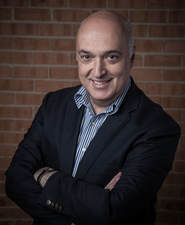
Professor Steven C. Boyages, MB BS, PhD, DDU, FRACP, FAFPHM
Clinical Professor, The University of Sydney, Australia
Clinical Professor University of Western Sydney, Australia
Profile
Vision and priorities that the WHBA should set for the next term
My career objective is to lead and to support organisations that are recognised nationally and internationally as world’s best by the promotion of scholarship, research, innovation, education, health protection, and care delivery underpinned by sound corporate and clinical governance. The WHBA is a such an entity that supports these goals by creating a formal and informal network to inspire and nurture the next generation of leaders in science and medicine. I bring to the WHBA extensive and deep experience in strategic and tactical leadership that can bring together diverse stakeholders to realise the goals of the organisation. I perceive the priorities are 1. Strengthen and expand the network across the globe by use of an effective social media strategy; 2. Improve the financial base of the WHBA through effective engagement with public and private benefactors; and 3; establish an alumni branch of the WHBA of its Summer School graduates.
Clinical Professor, The University of Sydney, Australia
Clinical Professor University of Western Sydney, Australia
Profile
- Specialist consultant physician in endocrinology and public health. International expert in thyroid disease and micronutrient deficiency. Extensive publications of 234 publications with 9380 citations Harzing index = 41.
- Senior management experience in NSW Health with over 12 years senior executive experience; two and half years as Director, Centre for Research and Clinical policy in NSW Health; 9 years as Area Chief Executive, and 18 months as Chief Executive of the Clinical Education and Training Institute (CETI). Experience in leading large, complex and distributed organisations with an operating budget of $2 billion dollars and 20,000 FTE. Maintained assets of approximately $ 1,500,000 million; Activity; 130,000 admissions per annum; 2.4 million outpatient services; 45th largest company by size in BRW top 1000 list; 43rd largest IT group by MIS magazine.First Medical Director EHealth NSW
- Over 20 years experience in medical prevocational and vocational training. Original member of the postgraduate medical council (PMC) of NSW and chair of the Workforce and Allocation Committee. Established Medical Training and Education Council (MTEC) and original board member of MTEC. Member of management committee for the Institute of Medical Education and Training (IMET).
- Partnership with Department of Education and Communities (DEC) and TAFE to develop models of regional engagement.
- Sponsored and implemented the first Nursing Initiatives in Schools Program (NIIS),
- Chair positions: Global Health Institute NSW, Diversity Health Institute NSW, Centre for Health Innovation and Partnership (CHIP), Senior Executive Advisory Council for HIMSS (Health Information Management Systems Society) Asia Pacific
- Board member: Woprld Hellenic Biomedical Association, Menzies Centre for Health Policy, Industry Training Advisory Board
Vision and priorities that the WHBA should set for the next term
My career objective is to lead and to support organisations that are recognised nationally and internationally as world’s best by the promotion of scholarship, research, innovation, education, health protection, and care delivery underpinned by sound corporate and clinical governance. The WHBA is a such an entity that supports these goals by creating a formal and informal network to inspire and nurture the next generation of leaders in science and medicine. I bring to the WHBA extensive and deep experience in strategic and tactical leadership that can bring together diverse stakeholders to realise the goals of the organisation. I perceive the priorities are 1. Strengthen and expand the network across the globe by use of an effective social media strategy; 2. Improve the financial base of the WHBA through effective engagement with public and private benefactors; and 3; establish an alumni branch of the WHBA of its Summer School graduates.
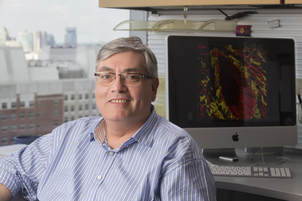
Antonis Hatzopoulos
Associate Professor of Medicine, Vanderbilt University Medical Center, USA
Profile
I am a scientist with a career-long focus on the biology of pluripotent and cardiovascular stem cells, as well as the molecular and cellular mechanisms of cardiac tissue repair and regeneration. I have participated as co-Principal Investigator in the Cardiovascular Cell Therapy Research Network (CCTRN), which completed three Clinical Trials using cell therapy in human patients of heart disease, and acted as the Program Director for the Vanderbilt University Medical Center (VUMC) Hub site of the NHLBI Progenitor Cell Biology Network Research Network (PCBC). I currently chair the PCBC Bioinformatics Committee, whose role is to establish quality indexes and standards for embryonic (ES) and induced pluripotent stem (iPS) cells.
At VUMC, I have mentored five PhD students, two MD/PhD students, four post-doctoral fellows, two clinical fellows and more than ten medical students, residents, undergraduate and high school students. Many have earned independent fellowship awards, including three American Heart Association fellowships. From past trainees who have left the laboratory, three hold full-time academic faculty positions, three have leadership positions in Industry, four work as physicians, and others complete clinical or research training at leading academic institutions. All my graduate students have published their work in leading journals in the cardiovascular and stem cell fields
Vision and priorities that the WHBA should set for the next term
It would be a great honor to serve in the WHBA Executive Board. My vision is to strengthen the position of WHBA in the current research environment and the need to transition from discovery to clinical application in order to directly impact human health. I believe WHBA, by virtue of its history, scope and focus, is well suited to play a role in this arena. I will focus on steps to increase the international participation of established investigators, but also young scientists from around the world in select WHBA meetings in order to foster interactions between early career scientists from Greece and their peers. I also believe that we could improve the organization and presentation of our web profile and resources to further cultivate interactions among trainees and with mentors. For example, create an interactive forum to highlight trainee accomplishments and address their needs, answer questions and offer helpful tips.
Associate Professor of Medicine, Vanderbilt University Medical Center, USA
Profile
I am a scientist with a career-long focus on the biology of pluripotent and cardiovascular stem cells, as well as the molecular and cellular mechanisms of cardiac tissue repair and regeneration. I have participated as co-Principal Investigator in the Cardiovascular Cell Therapy Research Network (CCTRN), which completed three Clinical Trials using cell therapy in human patients of heart disease, and acted as the Program Director for the Vanderbilt University Medical Center (VUMC) Hub site of the NHLBI Progenitor Cell Biology Network Research Network (PCBC). I currently chair the PCBC Bioinformatics Committee, whose role is to establish quality indexes and standards for embryonic (ES) and induced pluripotent stem (iPS) cells.
At VUMC, I have mentored five PhD students, two MD/PhD students, four post-doctoral fellows, two clinical fellows and more than ten medical students, residents, undergraduate and high school students. Many have earned independent fellowship awards, including three American Heart Association fellowships. From past trainees who have left the laboratory, three hold full-time academic faculty positions, three have leadership positions in Industry, four work as physicians, and others complete clinical or research training at leading academic institutions. All my graduate students have published their work in leading journals in the cardiovascular and stem cell fields
Vision and priorities that the WHBA should set for the next term
It would be a great honor to serve in the WHBA Executive Board. My vision is to strengthen the position of WHBA in the current research environment and the need to transition from discovery to clinical application in order to directly impact human health. I believe WHBA, by virtue of its history, scope and focus, is well suited to play a role in this arena. I will focus on steps to increase the international participation of established investigators, but also young scientists from around the world in select WHBA meetings in order to foster interactions between early career scientists from Greece and their peers. I also believe that we could improve the organization and presentation of our web profile and resources to further cultivate interactions among trainees and with mentors. For example, create an interactive forum to highlight trainee accomplishments and address their needs, answer questions and offer helpful tips.
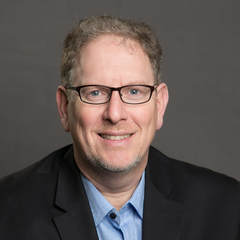
Elias Iliadis, MD, FACC, FSCAI, RPVI, FSVM
Medical Director, Cardiovascular Quality Assurance Program, NCDR advocate, Cooper University Cardiology, USA
Profile
Academic Appointments:
Clinical Assistant Professor of Medicine, Jefferson Medical College 2001-2002
Assistant Professor of Medicine, University of Medicine and Dentistry of New Jersey-Robert Wood Johnson Medical School at Camden. 2002-2010
Assistant Professor of Medicine, Cooper Medical School of Rowan University. 2010-2014
Associate Professor of Medicine, Cooper Medical School of Rowan University, 2014-present
Hospital Appointments:
Cooper University Hospital, Camden New Jersey. 2002- Present
Memorial Hospital of Salem County. 2004-present
Inspira Health Network-Vineland. 2006-present
Vision and priorities that the WHBA should set for the next term
Current Board member and wish to continue to serve
Medical Director, Cardiovascular Quality Assurance Program, NCDR advocate, Cooper University Cardiology, USA
Profile
Academic Appointments:
Clinical Assistant Professor of Medicine, Jefferson Medical College 2001-2002
Assistant Professor of Medicine, University of Medicine and Dentistry of New Jersey-Robert Wood Johnson Medical School at Camden. 2002-2010
Assistant Professor of Medicine, Cooper Medical School of Rowan University. 2010-2014
Associate Professor of Medicine, Cooper Medical School of Rowan University, 2014-present
Hospital Appointments:
Cooper University Hospital, Camden New Jersey. 2002- Present
Memorial Hospital of Salem County. 2004-present
Inspira Health Network-Vineland. 2006-present
Vision and priorities that the WHBA should set for the next term
Current Board member and wish to continue to serve
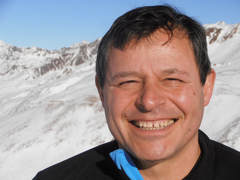
Prof. Dr. Panagiotis Karanis
Professor at the Medical School, University of Cologne, Germany
Professor and Director of the Centre of Biomedicine and Infectious Diseases (CBID), State Key Laboratory for Plateau Ecology and Agriculture
Profile
Professor Panagiotis Karanis obtained his PhD in Parasitology from Bonn University, Germany. Following post-doctoral research activities in Germany, Greece, Australia, Japan, Kanada, Thailand and China he has been working in the field of medical, epidemiological and molecular Parasitology taken into account both the pathogen and the disease.
He completed his habilitation at Bonn Medical School in Germany and got professorships in Japanese, German and Chinese Universities (National Research for Protozoan Diseases at the Obihiro University/Japan, Cologne Medical School/Germany/ and Qinghai University/China). He has an outstanding academic background, excellent publication record with more than 120 original peer review articles in journals related to Parasitology and Tropical Diseases and he has significant teaching experiences in the fields of Medical Parasitology, Tropical Diseases and Anatomy. He has authored a couple of book chapters.
His worldwide research activities focused in the control of water-, food- and vector-borne parasitic diseases including the development of diagnostic assays useful for basic and clinical platforms in the field of biomedicine. He was the main speaker of the Nobel-Days-Lecture during the Nobel-Days-Festivities at the Örebro University in Sweden in December 10th, 2012, focused on Malaria vaccine development.
Professor Karanis is an influential and prominent Greek Parasitologist, having had fundamental role in triggering the interest of the German, Greek, Japanese, and Chinese governments for research contributions on water-borne parasitic diseases and their control in many countries.
He has been selected in 2014 by the Chinese Government as a Foreign Distinguished Expert inside of the 1000 Talent Plan to work in Qinghai University.
Currently, he is a candidate for the General Director position at Hellenic Institute Pasteur (HIP) in Athens, Greece.
Vision and priorities that the WHBA should set for the next term
I am always wishing and striving to make the best use of my existing skills and experiences, not only to improve my own professional development, but also to pass on to the younger generations,always aiming to control pathogens and most important infectious diseases.
Through a possible position at WHBA, I could integrate WHBA into my existing international network of physicians and scientists to provide all participants at any career level worldwide opportunities for professional development and for combining all manpower to reach the common goal “One World – One Health in a Peaceful and Fair Environment”.
My vision and personal dream has always been to be able to take an influential and decisive position in my home country Greece, to use and apply my experiences, skills and worldwide collaborations, links and reputation, to contribute to the national health system, to support the collaborations between medical and scientific experts and government agencies, Centers for Disease Control and Prevention, Public Health authorities, and private and non-profit organisations, pharmaceutical and biotech industries, as well as universities, academic life sciences communities and foreign countries’ experts, embassies and institutions.
My vision is to assist making Greece a location of international fame in the field of biomedicine and public health, also to create new future perspectives for the Greek scientific and medical community and the following young generations. Rephrasing Aristotle’s words, “In the arena of human life the awards for the realization of a vision, will fall to those, who apply the best strategy”.
Professor at the Medical School, University of Cologne, Germany
Professor and Director of the Centre of Biomedicine and Infectious Diseases (CBID), State Key Laboratory for Plateau Ecology and Agriculture
Profile
Professor Panagiotis Karanis obtained his PhD in Parasitology from Bonn University, Germany. Following post-doctoral research activities in Germany, Greece, Australia, Japan, Kanada, Thailand and China he has been working in the field of medical, epidemiological and molecular Parasitology taken into account both the pathogen and the disease.
He completed his habilitation at Bonn Medical School in Germany and got professorships in Japanese, German and Chinese Universities (National Research for Protozoan Diseases at the Obihiro University/Japan, Cologne Medical School/Germany/ and Qinghai University/China). He has an outstanding academic background, excellent publication record with more than 120 original peer review articles in journals related to Parasitology and Tropical Diseases and he has significant teaching experiences in the fields of Medical Parasitology, Tropical Diseases and Anatomy. He has authored a couple of book chapters.
His worldwide research activities focused in the control of water-, food- and vector-borne parasitic diseases including the development of diagnostic assays useful for basic and clinical platforms in the field of biomedicine. He was the main speaker of the Nobel-Days-Lecture during the Nobel-Days-Festivities at the Örebro University in Sweden in December 10th, 2012, focused on Malaria vaccine development.
Professor Karanis is an influential and prominent Greek Parasitologist, having had fundamental role in triggering the interest of the German, Greek, Japanese, and Chinese governments for research contributions on water-borne parasitic diseases and their control in many countries.
He has been selected in 2014 by the Chinese Government as a Foreign Distinguished Expert inside of the 1000 Talent Plan to work in Qinghai University.
Currently, he is a candidate for the General Director position at Hellenic Institute Pasteur (HIP) in Athens, Greece.
Vision and priorities that the WHBA should set for the next term
I am always wishing and striving to make the best use of my existing skills and experiences, not only to improve my own professional development, but also to pass on to the younger generations,always aiming to control pathogens and most important infectious diseases.
Through a possible position at WHBA, I could integrate WHBA into my existing international network of physicians and scientists to provide all participants at any career level worldwide opportunities for professional development and for combining all manpower to reach the common goal “One World – One Health in a Peaceful and Fair Environment”.
My vision and personal dream has always been to be able to take an influential and decisive position in my home country Greece, to use and apply my experiences, skills and worldwide collaborations, links and reputation, to contribute to the national health system, to support the collaborations between medical and scientific experts and government agencies, Centers for Disease Control and Prevention, Public Health authorities, and private and non-profit organisations, pharmaceutical and biotech industries, as well as universities, academic life sciences communities and foreign countries’ experts, embassies and institutions.
My vision is to assist making Greece a location of international fame in the field of biomedicine and public health, also to create new future perspectives for the Greek scientific and medical community and the following young generations. Rephrasing Aristotle’s words, “In the arena of human life the awards for the realization of a vision, will fall to those, who apply the best strategy”.
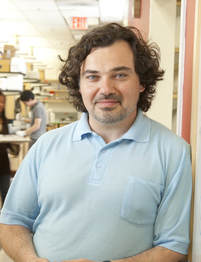
Nicholas Katsanis, PhD
Professor and Director, Center for Human Disease Modeling, Duke University, USA
Profile
My initial training was in genetics, where, subsequent to doctoral studies on Down syndrome, I moved to Baylor College of Medicine for postdoctoral training. It was at that point that I became fascinated by the pleiotropic phenotype of BBS and led the Baylor group effort to identify the first BBS gene, BBS6. Shortly after starting my group at Johns Hopkins, we showed that BBS was caused by basal body dysfunction, which led to the development of the ciliopathy model, wherein dysfunction at the primary cilium can give rise to a large group of disorders with both clinical and genetic overlap. This model disorder taught us how to evaluate genetic variation in patients and helped develop our models of epistasis, which we have since been able to apply to a host of other genetic conditions. In 2009 in relocated to Duke University where I am the founding Director of the Center for Human Disease Modeling, an interdisciplinary structure aimed at helping develop physiologically-relevant assays for the morbid human genome. Central to this effort has been the formation of networks to detect and interpret genetic variation in young patients de across > 300 genetic disorders and to model in vivo the effect of > 1200 alleles. I lead several NIH-funded projects and participate in collaborative activities that include Program Projects, Center Grants, and subcontracts. Our team has a strong record of not only productivity, but also exceptional willingness to collaborate, since I hold the view that synthesis of expertise is the only means to meaningfully advance both the scientific exercise and the clinical practice.
Vision and priorities that the WHBA should set for the next term
There are many exciting opportunities for this growing organization. However, at this stage, I would argue that focusing on a discrete set of well-grounded initiatives and demonstrating success would be most critical. 1) Continue to grow the Greece-US-Europe training conduit. The Niarchos grant has been an amazing opportunity, but we need to a) document success; b) find mechanisms to grow the initiative, both in terms of funding and scope. 2) Harnessing the WHBA School and network. The summer school is doing well but we are under-utilizing the growing network of scholars we have helped seed. We need to focus on PR, expanding the School activities, satellite events and other visibility opportunities
Professor and Director, Center for Human Disease Modeling, Duke University, USA
Profile
My initial training was in genetics, where, subsequent to doctoral studies on Down syndrome, I moved to Baylor College of Medicine for postdoctoral training. It was at that point that I became fascinated by the pleiotropic phenotype of BBS and led the Baylor group effort to identify the first BBS gene, BBS6. Shortly after starting my group at Johns Hopkins, we showed that BBS was caused by basal body dysfunction, which led to the development of the ciliopathy model, wherein dysfunction at the primary cilium can give rise to a large group of disorders with both clinical and genetic overlap. This model disorder taught us how to evaluate genetic variation in patients and helped develop our models of epistasis, which we have since been able to apply to a host of other genetic conditions. In 2009 in relocated to Duke University where I am the founding Director of the Center for Human Disease Modeling, an interdisciplinary structure aimed at helping develop physiologically-relevant assays for the morbid human genome. Central to this effort has been the formation of networks to detect and interpret genetic variation in young patients de across > 300 genetic disorders and to model in vivo the effect of > 1200 alleles. I lead several NIH-funded projects and participate in collaborative activities that include Program Projects, Center Grants, and subcontracts. Our team has a strong record of not only productivity, but also exceptional willingness to collaborate, since I hold the view that synthesis of expertise is the only means to meaningfully advance both the scientific exercise and the clinical practice.
Vision and priorities that the WHBA should set for the next term
There are many exciting opportunities for this growing organization. However, at this stage, I would argue that focusing on a discrete set of well-grounded initiatives and demonstrating success would be most critical. 1) Continue to grow the Greece-US-Europe training conduit. The Niarchos grant has been an amazing opportunity, but we need to a) document success; b) find mechanisms to grow the initiative, both in terms of funding and scope. 2) Harnessing the WHBA School and network. The summer school is doing well but we are under-utilizing the growing network of scholars we have helped seed. We need to focus on PR, expanding the School activities, satellite events and other visibility opportunities
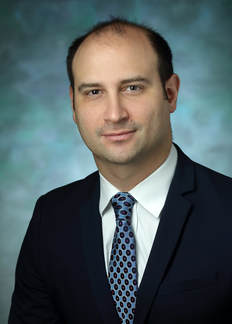
Georgios Kokosis, MD
Johns Hopkins University Hospital, Department of Plastic and Reconstructive Surgery, USA
Profile
Vision and priorities that the WHBA should set for the next term
I have been through the challenging transition from Greece to major academic institutions in the US. I am eager to help ambitious, extremely motivated Greeks to find a placement that they deserve based on their qualifications but may never get because they are foreigners.
Johns Hopkins University Hospital, Department of Plastic and Reconstructive Surgery, USA
Profile
- Post-Doc Research Fellowship, Wound Healing and Fibrosis Laboratory, Duke University Medical Center, Durham, NC Mentor-Howard Levinson, MD
- Resident in General Surgery, Duke University Hospital Durham, NC
- Chief Resident in General Surgery, Duke University Hospital Durham, NC
- Resident in Plastic and Reconstructive Surgery, Johns Hopkins Hospital, Baltimore, MD
Vision and priorities that the WHBA should set for the next term
I have been through the challenging transition from Greece to major academic institutions in the US. I am eager to help ambitious, extremely motivated Greeks to find a placement that they deserve based on their qualifications but may never get because they are foreigners.
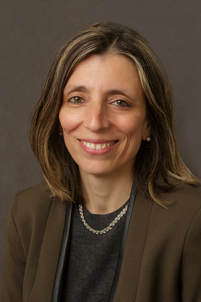
Stavroula Kousteni
Columbia University, USA
Profile
Dr. Kousteni received her Ph.D. from Cardiff University, United Kingdom and trained in the laboratory of Stavros Manolagas. She moved to the Departments of Medicine and Physiology at Columbia University Medical Center as an independent investigator in 2006. Since her arrival at Columbia, her contributions include the unraveling of mechanisms whereby oxidative stress affects bone mass, the analysis of the transcriptional mediation of bone suppressive functions of gut-derived serotonin, the transcriptional regulation of the endocrine function of bone as a glucose-regulating organ and the demonstration that osteoblasts regulate hematopoietic stem cell fate and can induce acute myeloid leukemia in mice and humans.Dr. Kousteni’s meritorious scientific accomplishments include, but are not limited to, the quality of her publications in the field, which are in-depth, innovative studies that are published in high profile journals and represent pivotal contributions to the field. Additionally, Dr. Kousteni has been funded by the NIH, is a mentor for undergraduate and graduate students as well as post-doctoral fellows, research associates and visiting professors, and is an author of more than 50 peer reviewed publications.
Vision and priorities that the WHBA should set for the next term
My vision is that WHBA functions as broad mentoring and implementation society that promotes training of students and young scientists with diverse backgrounds in biology and biomedical fields across the Greek borders and around the world. At the same time, that it is a means of bringing together Biomedical scientists from around the world to create a network of collaborations and open discussions. Organizing events and developing activities that expose the trainees to diverse scientific areas, bring them in contact with senior scientists from around the world that can advice and mentor them and create avenues, through funding opportunities that support short and long term fellowships in the laboratories of Greek and other scientists abroad. Similar opportunities should create forums for discussions and collaborations between established Hellenic scientists.
Columbia University, USA
Profile
Dr. Kousteni received her Ph.D. from Cardiff University, United Kingdom and trained in the laboratory of Stavros Manolagas. She moved to the Departments of Medicine and Physiology at Columbia University Medical Center as an independent investigator in 2006. Since her arrival at Columbia, her contributions include the unraveling of mechanisms whereby oxidative stress affects bone mass, the analysis of the transcriptional mediation of bone suppressive functions of gut-derived serotonin, the transcriptional regulation of the endocrine function of bone as a glucose-regulating organ and the demonstration that osteoblasts regulate hematopoietic stem cell fate and can induce acute myeloid leukemia in mice and humans.Dr. Kousteni’s meritorious scientific accomplishments include, but are not limited to, the quality of her publications in the field, which are in-depth, innovative studies that are published in high profile journals and represent pivotal contributions to the field. Additionally, Dr. Kousteni has been funded by the NIH, is a mentor for undergraduate and graduate students as well as post-doctoral fellows, research associates and visiting professors, and is an author of more than 50 peer reviewed publications.
Vision and priorities that the WHBA should set for the next term
My vision is that WHBA functions as broad mentoring and implementation society that promotes training of students and young scientists with diverse backgrounds in biology and biomedical fields across the Greek borders and around the world. At the same time, that it is a means of bringing together Biomedical scientists from around the world to create a network of collaborations and open discussions. Organizing events and developing activities that expose the trainees to diverse scientific areas, bring them in contact with senior scientists from around the world that can advice and mentor them and create avenues, through funding opportunities that support short and long term fellowships in the laboratories of Greek and other scientists abroad. Similar opportunities should create forums for discussions and collaborations between established Hellenic scientists.

Catherine Kreatsoulas
Harvard TH Chan School of Public Health and University of Toronto
Vision and priorities that the WHBA should set for the next term
Harvard TH Chan School of Public Health and University of Toronto
Vision and priorities that the WHBA should set for the next term
- Strategize and scale up fundraising efforts
- Create a database of student evaluations to track our success
- Expand education curriculum into specialization streams
- Create a database of alumni and faculty to develop a larger WHBA collaborative network
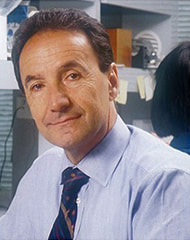
Steven Krilis
St. George Hospital, University of New South Wales, Australia
Curriculum Vitae
Profile
Professor Krilis is an advocate of medical research with a major emphasis on translational research. He was responsible for establishing the department of immunology and infectious disease, and establishing a vibrant research programme when there was no research infrastructure or research being performed at St. George Hospital, Sydney. Professor Krilis has been the driving force in directing the growth of the research programme at St. George Hospital. His major goal is to deliver research outcomes of national and international significance. He has demonstrated leadership in basic research, clinical medicine and in the academic sphere at a national and international level through directorship of hospital and an academic department; contribution to clinical and academic boards; membership of numerous hospital and university committees, and participation on prestigious international boards for medical research and committees associated with government funding of medical research. Professor Krilis currently holds the Chair in Immunology, Infectious Diseases at St. George Hospital, University of New South Wales and is the Director of the Department of Infectious Disease, Immunology and Sexual Health, Faculty of Medicine St. George Hospital Clinic School and actively contributes to hospital and university policy and on grant review panels for NH&MRC project grant funding. He has the responsibility of a very busy clinical department and running of a hospital-wide infectious disease and immunology inpatient, outpatient and consultative service for the St. George Hospital campus and affiliated hospitals.
Vision and priorities that the WHBA should set for the next term
I am passionate about the Hellenic Biomedical Diaspora and wish to participate in enhancing and promoting the objectives of the World Hellenic Biomedical Association. I am an advocate of the Hellenic Diaspora and as a result of this have trained both clinical and in the basic sciences a number of Greek doctors from Greece and abroad by providing fellowships to work in my Department. My goals would be to increase and promote the exchange of Greek professionals and professionals of Hellenic heritage, those living in Greece and abroad. I aim to increase the number of Hellenic medical and bioscientific individuals and create an environment where they can flourish. One priority for the next WHBA term would be to encourage and establish fellowships for junior and more senior investigators from the Greek Diaspora to take up short term fellowships in Greek Universities to transfer their skill sets to the local academic community.
St. George Hospital, University of New South Wales, Australia
Curriculum Vitae
Profile
Professor Krilis is an advocate of medical research with a major emphasis on translational research. He was responsible for establishing the department of immunology and infectious disease, and establishing a vibrant research programme when there was no research infrastructure or research being performed at St. George Hospital, Sydney. Professor Krilis has been the driving force in directing the growth of the research programme at St. George Hospital. His major goal is to deliver research outcomes of national and international significance. He has demonstrated leadership in basic research, clinical medicine and in the academic sphere at a national and international level through directorship of hospital and an academic department; contribution to clinical and academic boards; membership of numerous hospital and university committees, and participation on prestigious international boards for medical research and committees associated with government funding of medical research. Professor Krilis currently holds the Chair in Immunology, Infectious Diseases at St. George Hospital, University of New South Wales and is the Director of the Department of Infectious Disease, Immunology and Sexual Health, Faculty of Medicine St. George Hospital Clinic School and actively contributes to hospital and university policy and on grant review panels for NH&MRC project grant funding. He has the responsibility of a very busy clinical department and running of a hospital-wide infectious disease and immunology inpatient, outpatient and consultative service for the St. George Hospital campus and affiliated hospitals.
Vision and priorities that the WHBA should set for the next term
I am passionate about the Hellenic Biomedical Diaspora and wish to participate in enhancing and promoting the objectives of the World Hellenic Biomedical Association. I am an advocate of the Hellenic Diaspora and as a result of this have trained both clinical and in the basic sciences a number of Greek doctors from Greece and abroad by providing fellowships to work in my Department. My goals would be to increase and promote the exchange of Greek professionals and professionals of Hellenic heritage, those living in Greece and abroad. I aim to increase the number of Hellenic medical and bioscientific individuals and create an environment where they can flourish. One priority for the next WHBA term would be to encourage and establish fellowships for junior and more senior investigators from the Greek Diaspora to take up short term fellowships in Greek Universities to transfer their skill sets to the local academic community.
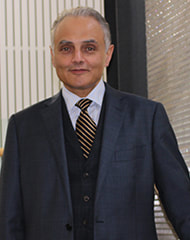
Leonard (Len) Kritharides, M.S., B.S., PhD., F.R.A.C.P., F.A.H.A., F.C.S.A.N.Z., F.E.S.C.
Professor in Medicine, Concord Clinical School, ANZAC Research Institute, Sydney Medical School, University of Sydney, Australia
Profile
Professor Leonard Kritharides is Head of Department and Director of Cardiology at Concord Repatriation General Hospital (CRGH) Sydney, University of Sydney, and Deputy Clinical Director of the Cardiovascular Stream Sydney Local Health District. He is Group leader of the Atherosclerosis and Vascular Biology Groups of the ANZAC Research Institute (ARI). He completed his undergraduate medical degree at the University of Melbourne (1984), and his Postgraduate Physician Training in Cardiology at the Royal Melbourne Hospital (1990). In 1994 he completed a PhD in Macrophage biology at the Heart Research Institute in Sydney, after which he completed post-doctoral studies at the Heart Research Institute and at the Medical College of Pennsylvania in the United States (1995-1997). In 1998 he took up an appointment as Conjoint Senior Lecturer and Staff Specialist in Cardiology and Director of Echocardiography at Concord Hospital, where he has trained in Interventional Cardiology and has practised as a General and Interventional Cardiologist. He was appointed Senior Staff Specialist and Head of Department in 2004. He was Chairman of the Division of Medicine at Concord Hospital from 2005-2007. In 2008 he was appointed Professor in Medicine at the University of Sydney (conjoint), and in 2009 Professor in the School of Medical Sciences at the University of New South Wales (conjoint). He was head of the Clinical Research group at the Heart Research Institute from 1997-2002, co-leader of the Macrophage Biology laboratory at the Centre for Vascular Research University New South Wales 2002-2012, and since 2012 leads the Atherosclerosis and Vascular Biology Laboratories at the ANZAC Research Institute on site with Concord Hospital. He has clinical and basic research interests in atherosclerosis and thrombosis, being funded continuously by the National Health and Medical Research Council (NHMRC) and/or the National Heart Foundation (NHF) of Australia since 1996. In 2017 he became Chairman of the Board of the Heart Research Institute, and in 2018 he will become national President of the Cardiac Society of Australia and New Zealand.
Vision and priorities that the WHBA should set for the next term
Develop opportunities for scientists and medical researchers from around the world to link up with groups affiliated with WHBA. ie not only from Greece. Will make WHBA much more influential.
Professor in Medicine, Concord Clinical School, ANZAC Research Institute, Sydney Medical School, University of Sydney, Australia
Profile
Professor Leonard Kritharides is Head of Department and Director of Cardiology at Concord Repatriation General Hospital (CRGH) Sydney, University of Sydney, and Deputy Clinical Director of the Cardiovascular Stream Sydney Local Health District. He is Group leader of the Atherosclerosis and Vascular Biology Groups of the ANZAC Research Institute (ARI). He completed his undergraduate medical degree at the University of Melbourne (1984), and his Postgraduate Physician Training in Cardiology at the Royal Melbourne Hospital (1990). In 1994 he completed a PhD in Macrophage biology at the Heart Research Institute in Sydney, after which he completed post-doctoral studies at the Heart Research Institute and at the Medical College of Pennsylvania in the United States (1995-1997). In 1998 he took up an appointment as Conjoint Senior Lecturer and Staff Specialist in Cardiology and Director of Echocardiography at Concord Hospital, where he has trained in Interventional Cardiology and has practised as a General and Interventional Cardiologist. He was appointed Senior Staff Specialist and Head of Department in 2004. He was Chairman of the Division of Medicine at Concord Hospital from 2005-2007. In 2008 he was appointed Professor in Medicine at the University of Sydney (conjoint), and in 2009 Professor in the School of Medical Sciences at the University of New South Wales (conjoint). He was head of the Clinical Research group at the Heart Research Institute from 1997-2002, co-leader of the Macrophage Biology laboratory at the Centre for Vascular Research University New South Wales 2002-2012, and since 2012 leads the Atherosclerosis and Vascular Biology Laboratories at the ANZAC Research Institute on site with Concord Hospital. He has clinical and basic research interests in atherosclerosis and thrombosis, being funded continuously by the National Health and Medical Research Council (NHMRC) and/or the National Heart Foundation (NHF) of Australia since 1996. In 2017 he became Chairman of the Board of the Heart Research Institute, and in 2018 he will become national President of the Cardiac Society of Australia and New Zealand.
Vision and priorities that the WHBA should set for the next term
Develop opportunities for scientists and medical researchers from around the world to link up with groups affiliated with WHBA. ie not only from Greece. Will make WHBA much more influential.
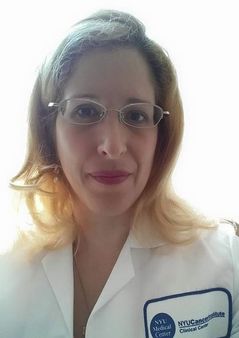
Stella C. Lymberis, M.D.
Assistant Professor, Department of Radiation Oncology, New York University, NYC, NY, USA
Profile
Although a US born citizen, I was raised in Greece and returned to the US with my family and studied Chemical Engineering at MIT, completing a BS degree in 1995, studied medicine at the Albert Einstein College of Medicine and completed residency in radiation oncology at New York University. I worked as an Assistant Attending, specializing in neuro-oncology and stereotactic radiosurgery at Memorial Sloan Kettering Cancer Center, NYC, NY from 2005-2007. Since 2007, I have worked at New York University in the Department of Radiation Oncology specializing in the treatment of gynecologic cancer radiotherapy utilizing up-to-date brachytherapy techniques in order to achieve cure in advanced cervical and endometrial cancers. I have been the PI on on-going research projects involving QA improvement and patient experience in gynecologic brachytherapy, evaluating dosimetry of brachytherapy applicators used in brachytherapy, and incorporating MRI planning in cervical brachytherapy treatment planning. I have co-authored over 20 peer-review journal articles, book chapters and presented over 50 abstracts at national meetings. I have mentored MIT college students interested in medicine, and provide teaching and research mentoring for radiation oncology residents and fellows in gynecologic oncology surgery. Also, continuing on my previous work in stereotactic radiosurgery in CNS tumors, I also am PI on a grant evaluating a patient-specific End-to-End QA and pre-treatment plan verification for cranial stereotactic radiosurgery using the ICON-Gamma knife system funded by RTsafe, Inc.
I represent the Radiation Oncology Department at New York University Langone Medical Center’s Physician Quality Leaders Committee, National Measures Executive Meetings, serve as representative for Cancer Center Disease Management Group for Gynecologic Oncology and also serve on the IRB Committee.
Vision and priorities that the WHBA should set for the next term
As a member of the Hellenic Medical Society of NY Board over the past 8 years, four years of which I served as Vice President, I know personally the hard work and accomplishment of the WHBA over the past decade. The growth and continued improvement year after year of the WHBA mission is really astounding. As a clinician, I hope that you will consider my candidacy for the board of WHBA because I think I can contribute to the vision and future development, especially of “The Stavros Foundation Research Training Program in Clinical and Experimental Medicine” (RTP-CEM) via a formal partnership with the Stavros Niarchos Foundation (SNF). In particular I would like to assist in matching participants in medicine in either clinical or translational tracks for their 2 year program. I have served in the capacity of mentoring students throughout my professional career and take great pride in helping and assisting young physicians and scientists as they embark on the journey to accomplish their career goals. The enthusiasm, excitement and reward can be contagious. Furthermore, as a Greek American I am especially proud to assist young Greek physicians and scientist who have so much to offer if only if they are given the opportunity to be exposed to American academic medicine and science. In summary, I hope you will consider my candidacy. I look forward to working with such a dynamic group which I have seen grow and succeed through the years. There is great potential and the sky's the limit as you expand internationally your efforts.
Assistant Professor, Department of Radiation Oncology, New York University, NYC, NY, USA
Profile
Although a US born citizen, I was raised in Greece and returned to the US with my family and studied Chemical Engineering at MIT, completing a BS degree in 1995, studied medicine at the Albert Einstein College of Medicine and completed residency in radiation oncology at New York University. I worked as an Assistant Attending, specializing in neuro-oncology and stereotactic radiosurgery at Memorial Sloan Kettering Cancer Center, NYC, NY from 2005-2007. Since 2007, I have worked at New York University in the Department of Radiation Oncology specializing in the treatment of gynecologic cancer radiotherapy utilizing up-to-date brachytherapy techniques in order to achieve cure in advanced cervical and endometrial cancers. I have been the PI on on-going research projects involving QA improvement and patient experience in gynecologic brachytherapy, evaluating dosimetry of brachytherapy applicators used in brachytherapy, and incorporating MRI planning in cervical brachytherapy treatment planning. I have co-authored over 20 peer-review journal articles, book chapters and presented over 50 abstracts at national meetings. I have mentored MIT college students interested in medicine, and provide teaching and research mentoring for radiation oncology residents and fellows in gynecologic oncology surgery. Also, continuing on my previous work in stereotactic radiosurgery in CNS tumors, I also am PI on a grant evaluating a patient-specific End-to-End QA and pre-treatment plan verification for cranial stereotactic radiosurgery using the ICON-Gamma knife system funded by RTsafe, Inc.
I represent the Radiation Oncology Department at New York University Langone Medical Center’s Physician Quality Leaders Committee, National Measures Executive Meetings, serve as representative for Cancer Center Disease Management Group for Gynecologic Oncology and also serve on the IRB Committee.
Vision and priorities that the WHBA should set for the next term
As a member of the Hellenic Medical Society of NY Board over the past 8 years, four years of which I served as Vice President, I know personally the hard work and accomplishment of the WHBA over the past decade. The growth and continued improvement year after year of the WHBA mission is really astounding. As a clinician, I hope that you will consider my candidacy for the board of WHBA because I think I can contribute to the vision and future development, especially of “The Stavros Foundation Research Training Program in Clinical and Experimental Medicine” (RTP-CEM) via a formal partnership with the Stavros Niarchos Foundation (SNF). In particular I would like to assist in matching participants in medicine in either clinical or translational tracks for their 2 year program. I have served in the capacity of mentoring students throughout my professional career and take great pride in helping and assisting young physicians and scientists as they embark on the journey to accomplish their career goals. The enthusiasm, excitement and reward can be contagious. Furthermore, as a Greek American I am especially proud to assist young Greek physicians and scientist who have so much to offer if only if they are given the opportunity to be exposed to American academic medicine and science. In summary, I hope you will consider my candidacy. I look forward to working with such a dynamic group which I have seen grow and succeed through the years. There is great potential and the sky's the limit as you expand internationally your efforts.
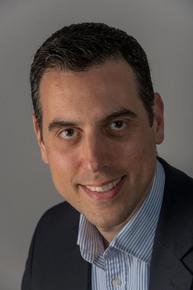
Konstantinos Manolopoulos, MD, DPhil
Clinician Scientist in Endocrinology and Human Metabolism, Institute of Metabolism and Systems Research, University of Birmingham, UK
Honorary Consultant Endocrinologist, University Hospitals Birmingham NHS Foundation Trust, Queen Elizabeth Hospital, UK
Profile
I am a Clinician Scientist in Endocrinology and Human Metabolism with a research interest in human in vivo metabolic physiology. In my research I explore the hormonal determinants of adipose tissue function, and am particularly interested in the factors causing adipocyte dysfunction in obesity. I am leading the Human Integrative Physiology and Metabolism lab at the Institute of Metabolism and Systems Research at the University of Birmingham in the UK. I am also an Honorary Consultant in Endocrinology at the Queen Elizabeth Hospital Birmingham and my clinical interests range from PCOS to complex endocrine obesity. I hold an MD from the University of Bochum, Germany, and a D.Phil. from the University of Oxford.
Vision and priorities that the WHBA should set for the next term
As a clinician scientist I am keen to promote the objectives of the WHBA and increase the positive impact the Association can deliver. My vision is to build upon the successful Summer School and RTP-CEM programmes and work towards increasing the Association's activities in Europe and outside the USA in general. Ideally, I would like to establish a further exchange programme that will provide visiting research fellowships in labs and clinical departments for promising young scientists and clinician scientists across Europe and Australia.
Clinician Scientist in Endocrinology and Human Metabolism, Institute of Metabolism and Systems Research, University of Birmingham, UK
Honorary Consultant Endocrinologist, University Hospitals Birmingham NHS Foundation Trust, Queen Elizabeth Hospital, UK
Profile
I am a Clinician Scientist in Endocrinology and Human Metabolism with a research interest in human in vivo metabolic physiology. In my research I explore the hormonal determinants of adipose tissue function, and am particularly interested in the factors causing adipocyte dysfunction in obesity. I am leading the Human Integrative Physiology and Metabolism lab at the Institute of Metabolism and Systems Research at the University of Birmingham in the UK. I am also an Honorary Consultant in Endocrinology at the Queen Elizabeth Hospital Birmingham and my clinical interests range from PCOS to complex endocrine obesity. I hold an MD from the University of Bochum, Germany, and a D.Phil. from the University of Oxford.
Vision and priorities that the WHBA should set for the next term
As a clinician scientist I am keen to promote the objectives of the WHBA and increase the positive impact the Association can deliver. My vision is to build upon the successful Summer School and RTP-CEM programmes and work towards increasing the Association's activities in Europe and outside the USA in general. Ideally, I would like to establish a further exchange programme that will provide visiting research fellowships in labs and clinical departments for promising young scientists and clinician scientists across Europe and Australia.
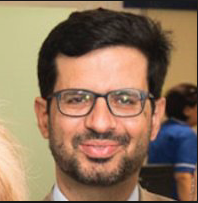
Christos Proukakis
Senior Lecturer in Clinical Neuroscience, University College London Institute of Neurology, London, UK
Honorary Consultant Neurologist, Royal Free London NHS Trust, London, UK
Profile
I completed my medical studies in Cambridge and Oxford, and my neurology training and PhD in neurogenetics in London. Since my appointment as Senior Lecturer at UCL in 2009, I have worked on the genetics and cell biology of Parkinson's disease. I have combined this with an active clinical post, split between Parkinson’s disease / neurogenetics, and general neurology. I have proposed and have been investigating the hypothesis of somatic mutations, with funding mainly from the Michael J Fox Foundation. The opportunity to combine clinical care with basic laboratory research is the most challenging but also the most rewarding part of my career.
Vision and priorities that the WHBA should set for the next term
As a clinical academic neurologist, I believe that the WHBA can play an important role in helping clinical and academic training and networking. I was the president of the Hellenic Medical Society of the UK (2014-5), and focused on our junior researcher competition and invited speakers at the “Hippocratic orations”. More recently I was honoured to be an instructor at the WHBA summer school, and very impressed with the caliber of the teaching board and participants. I regard this as a major success that we should build on. We should also aim to consolidate and later expand the incredible opportunities provided by sponsored training fellowships, and provide the funders with full feedback on these activities to ensure their future support.
Senior Lecturer in Clinical Neuroscience, University College London Institute of Neurology, London, UK
Honorary Consultant Neurologist, Royal Free London NHS Trust, London, UK
Profile
I completed my medical studies in Cambridge and Oxford, and my neurology training and PhD in neurogenetics in London. Since my appointment as Senior Lecturer at UCL in 2009, I have worked on the genetics and cell biology of Parkinson's disease. I have combined this with an active clinical post, split between Parkinson’s disease / neurogenetics, and general neurology. I have proposed and have been investigating the hypothesis of somatic mutations, with funding mainly from the Michael J Fox Foundation. The opportunity to combine clinical care with basic laboratory research is the most challenging but also the most rewarding part of my career.
Vision and priorities that the WHBA should set for the next term
As a clinical academic neurologist, I believe that the WHBA can play an important role in helping clinical and academic training and networking. I was the president of the Hellenic Medical Society of the UK (2014-5), and focused on our junior researcher competition and invited speakers at the “Hippocratic orations”. More recently I was honoured to be an instructor at the WHBA summer school, and very impressed with the caliber of the teaching board and participants. I regard this as a major success that we should build on. We should also aim to consolidate and later expand the incredible opportunities provided by sponsored training fellowships, and provide the funders with full feedback on these activities to ensure their future support.
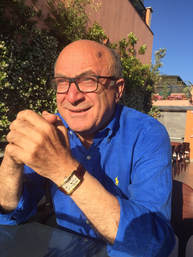
Nikos Sikloglou
Aristotelion, International Institute of Culture, Rome, Italy
Curriculum Vitae
Vision and priorities that the WHBA should set for the next term
My vision is to see our country again to be a SCHOOL as it has been SCHOOL in the past. Thus this could be the reference point for all young people: OLYMPIC ACADEMY OF CLASSICAL STUDIES (Master classes in Mythology, Archeology, Phylosophy)
Aristotelion, International Institute of Culture, Rome, Italy
Curriculum Vitae
Vision and priorities that the WHBA should set for the next term
My vision is to see our country again to be a SCHOOL as it has been SCHOOL in the past. Thus this could be the reference point for all young people: OLYMPIC ACADEMY OF CLASSICAL STUDIES (Master classes in Mythology, Archeology, Phylosophy)
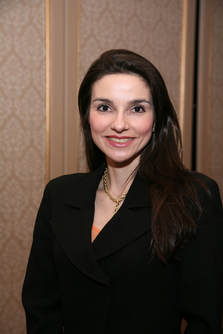
Leila C. Thanasoulis, M.D
New York Community Hospital, City of New York, USA
Profile
Professional Experience
2016-Currently World Trade Center Health Program, City Medical Specialist, City of New York, NY
2016-Currently Department of Surgery, Brooklyn Hospital, Brooklyn, NY
2015- Currently Surgeon/Surgical Intensivist, New York Community Hospital, Brooklyn, NY
2015-2017 Department of Surgery,Kingsbrook Jewish Medical Center,Brooklyn,NY
2014-2015 Surgeon, Interfaith Medical Center, Brooklyn, NY
2008-2010 Director of Solomon Katz Breast Center, Breast Surgery Sound Shore Medical
Center of Westchester, New Rochelle, NY
2013-Dec. 31, 2014 Consensus Committee, American Society of Breast Disease, Dallas, TX
2009-2015 Research Committee, The American Society of Breast Surgeons, Columbia, MD
2008- Dec. 31, 2014 American Society of Breast Disease Advisor Editorial Board, Dallas, TX
2008-2015 Patient Safety and Quality Committee, The American Society of Breast
Surgeons, Columbia, MD
Vision and priorities that the WHBA should set for the next term
To expand the dissemination of Hellenic Bio-Medical Diaspora Worldwide with activities promoted by the Global Hellenic and Bioscientists Network and including all health sciences and bioscientific areas of scientists and professionals.
New York Community Hospital, City of New York, USA
Profile
Professional Experience
2016-Currently World Trade Center Health Program, City Medical Specialist, City of New York, NY
2016-Currently Department of Surgery, Brooklyn Hospital, Brooklyn, NY
2015- Currently Surgeon/Surgical Intensivist, New York Community Hospital, Brooklyn, NY
2015-2017 Department of Surgery,Kingsbrook Jewish Medical Center,Brooklyn,NY
2014-2015 Surgeon, Interfaith Medical Center, Brooklyn, NY
2008-2010 Director of Solomon Katz Breast Center, Breast Surgery Sound Shore Medical
Center of Westchester, New Rochelle, NY
2013-Dec. 31, 2014 Consensus Committee, American Society of Breast Disease, Dallas, TX
2009-2015 Research Committee, The American Society of Breast Surgeons, Columbia, MD
2008- Dec. 31, 2014 American Society of Breast Disease Advisor Editorial Board, Dallas, TX
2008-2015 Patient Safety and Quality Committee, The American Society of Breast
Surgeons, Columbia, MD
Vision and priorities that the WHBA should set for the next term
To expand the dissemination of Hellenic Bio-Medical Diaspora Worldwide with activities promoted by the Global Hellenic and Bioscientists Network and including all health sciences and bioscientific areas of scientists and professionals.

Christos Tolias, MBBS, PhD, FRCS (Engl), FRCS (SN)
Consultant Neurosurgeon Clinical Lead Neurosurgery SBNS Council Kings College Hospital London, UK
Profile
CURRENT APPOINTMENT
Consultant Neurosurgeon & Honorary Senior Lecturer,
King`s College Hospital NHS Foundation Trust, 1/9/2005-Present
SBNS Meetings Secretary and Elected Council Member 2014 - to date
Examiner in the Intercollegiate Specialty Examination in Neurosurgery 2016 – 2021
Director of the first nationally accredited UK Neurovascular Fellowship 2010 - to date
Vision and priorities that the WHBA should set for the next term
I have been following the WHBA and its activities for some time. I am impressed by its success and organised events. I am keen that WHBA also promote medical and surgical excellence in the UK and Europe as an ever increasing number of colleagues from Greece make the move to European countries. Promoting biomedical research but also supporting and preclinical and clinical medical and surgical training is paramount if the success of the Greek Medical Diaspora is to continue and lead to a return of some of this talent home.
Consultant Neurosurgeon Clinical Lead Neurosurgery SBNS Council Kings College Hospital London, UK
Profile
CURRENT APPOINTMENT
Consultant Neurosurgeon & Honorary Senior Lecturer,
King`s College Hospital NHS Foundation Trust, 1/9/2005-Present
SBNS Meetings Secretary and Elected Council Member 2014 - to date
Examiner in the Intercollegiate Specialty Examination in Neurosurgery 2016 – 2021
Director of the first nationally accredited UK Neurovascular Fellowship 2010 - to date
Vision and priorities that the WHBA should set for the next term
I have been following the WHBA and its activities for some time. I am impressed by its success and organised events. I am keen that WHBA also promote medical and surgical excellence in the UK and Europe as an ever increasing number of colleagues from Greece make the move to European countries. Promoting biomedical research but also supporting and preclinical and clinical medical and surgical training is paramount if the success of the Greek Medical Diaspora is to continue and lead to a return of some of this talent home.

Dr. Styliani (Stella) Vlachou, PhD
Assistant Professor in Biopsychology, School of Nursing and Human Sciences, Faculty of Science and Health, Dublin City University (DCU), Dublin, Ireland; Principal Investigator of the Behavioural Neuroscience Laboratory at DCU, Dublin, Ireland
Curriculum Vitae
Profile
Professional Experience and Selected Training:
June 2003-December 2003: Pre-doctoral Marie Curie Fellow, (EC Contract No: HMPT-CT-2001-00234) Brighton (UK), University of Sussex, Dept. of Psychology. Supervisor: Prof. David N. Stephens
July 2005: British Association for Psychopharmacology (BAP) Series of Seminars (modules No 4, 5) towards the BAP Preclinical Certificate
March-October 2005: Research Assistant in the Research Project: Exploitation of novel cannabinoid analogs with possible analgesic, psychomotor and anti-abuse potential. Involved in the Work Package: Behavioral studies of the abuse and antibuse potential of selected cannabinoid ligands.Funded by GSRT-EU. Project Leader: Christina Spyraki, Professor of Pharmacology
January 2007-September 2011: TRDRP Post-doctoral Fellow/Researcher, University of California at San Diego, La Jolla, CA, USA
January-May 2015: Aurora Women Leadership in Higher Education Training Scheme (selected by the Dean of Faculty of Science and Health, DCU)
December 2017-January 2018: Role Model for Aurora Women Leadership in Higher Education
Vision and priorities that the WHBA should set for the next termI have been following advancements of the WHBA for the past few years and I am impressed with the work already conducted by dedicated colleagues of the EB. I am confident that the WHBA will keep on supporting young bioscientists and physicians in Greece, but also the Hellenic Medical and Bioscientific Diaspora which has increased immensely in numbers across various countries in Europe, the USA and elsewhere in the recent years. My vision for the WHBA is to expand “The Stavros Foundation Research Training Program in Clinical and Experimental Medicine” (RTP-CEM), establish new initiatives and/or identify new funding opportunities to include more biomedical sciences students and to be running in various countries, except for the USA, such as Ireland, where medical programs and the biopharmaceutical industry are really well established and Greek bioscientists are well sought for. I consider this expansion an essential priority for the WHBA.
Assistant Professor in Biopsychology, School of Nursing and Human Sciences, Faculty of Science and Health, Dublin City University (DCU), Dublin, Ireland; Principal Investigator of the Behavioural Neuroscience Laboratory at DCU, Dublin, Ireland
Curriculum Vitae
Profile
Professional Experience and Selected Training:
June 2003-December 2003: Pre-doctoral Marie Curie Fellow, (EC Contract No: HMPT-CT-2001-00234) Brighton (UK), University of Sussex, Dept. of Psychology. Supervisor: Prof. David N. Stephens
July 2005: British Association for Psychopharmacology (BAP) Series of Seminars (modules No 4, 5) towards the BAP Preclinical Certificate
March-October 2005: Research Assistant in the Research Project: Exploitation of novel cannabinoid analogs with possible analgesic, psychomotor and anti-abuse potential. Involved in the Work Package: Behavioral studies of the abuse and antibuse potential of selected cannabinoid ligands.Funded by GSRT-EU. Project Leader: Christina Spyraki, Professor of Pharmacology
January 2007-September 2011: TRDRP Post-doctoral Fellow/Researcher, University of California at San Diego, La Jolla, CA, USA
January-May 2015: Aurora Women Leadership in Higher Education Training Scheme (selected by the Dean of Faculty of Science and Health, DCU)
December 2017-January 2018: Role Model for Aurora Women Leadership in Higher Education
Vision and priorities that the WHBA should set for the next termI have been following advancements of the WHBA for the past few years and I am impressed with the work already conducted by dedicated colleagues of the EB. I am confident that the WHBA will keep on supporting young bioscientists and physicians in Greece, but also the Hellenic Medical and Bioscientific Diaspora which has increased immensely in numbers across various countries in Europe, the USA and elsewhere in the recent years. My vision for the WHBA is to expand “The Stavros Foundation Research Training Program in Clinical and Experimental Medicine” (RTP-CEM), establish new initiatives and/or identify new funding opportunities to include more biomedical sciences students and to be running in various countries, except for the USA, such as Ireland, where medical programs and the biopharmaceutical industry are really well established and Greek bioscientists are well sought for. I consider this expansion an essential priority for the WHBA.
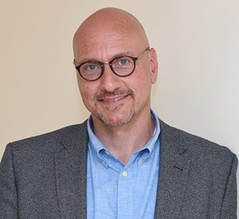
Theoklis Zaoutis, MD, MSCE, PhD
Professor of Pediatrics and Epidemiology, Perelman School of Medicine, University of Pennsylvania and Chief, Infectious Diseases, The Children's Hospital of Philadelphia, USA
Profile
I am currently the Werner and Gertrude Henle Endowed Professor of Pediatrics and Professor of Epidemiology at the Perelman School of Medicine at the University of Pennsylvania (Penn) and Chief of the Division of Infectious Diseases at the Children’s Hospital of Philadelphia (CHOP). I also am Senior Scholar at the Center for Clinical Epidemiology and Biostatistics at PENN. The majority of medical training was in the US with the exception of my PhD, which was completed at the National and Kapodistrian School of Medicine in Athens, Greece. My research interests focus on healthcare epidemiology with an emphasis on healthcare-acquired infections, fungal infections, antimicrobial resistance and antimicrobial stewardship. I am active both in research and policy in both the US and the European Union (EU). I engineered and currently lead a distinctive clinical epidemiology research group within the infectious diseases division at CHOP. The group’s current funding is approximately $30,000,000. As chief of the infectious diseases division at CHOP, I am responsible for 11 faculty members. Beyond the division of infectious diseases, I serve as director of the Center for Pediatric Clinical Effectiveness research, a center of emphasis in the CHOP Research Institute. The center currently employs 30 core faculty members over 50 research staff. The total grant funding that the center has obtained since its inception in 2007 exceeds $88,000,000. At Penn, I hold a leadership role in education that has provided invaluable experience. I currently serve as director of the one of the most successful and popular master’s degree programs at Penn, the Master of Science in Clinical Epidemiology. Currently, I am principal investigator (PI) of an National Institutes of Allergy and Infectious Diseases (NIAID) R01 grant and a $14,000,000 NIAID contract aimed at reducing antimicrobial resistance in addition to PI roles and co-investigator roles on multiple other projects funded by a diversity of sources.
Work in Greece
I am committed to healthcare improvement in Greece. As evidence for this in 2011, I founded the Center for Clinical Epidemiology and Outcomes (CLEO) funded in large part by the Stavros Niarchos Foundation. The center aims to improve patient safety and quality in Greek hospitals. My work as scientific director of CLEO has been on a volunteer basis.
Vision and priorities that the WHBA should set for the next term
In addition to the my affiliation in the USA, I currently direct the Center for Clinical Epidemiology and Outcomes Research (CLEO) in Greece. CLEO is an NGO funded in large part by the Stavros Niarchos Foundation. CLEO’s vision is to improve patient safety and the quality healthcare services provided by Greek hospitals, I My vision would be to include as part of WHBA's work very practical solutions via implementation and quality improvement research to biomedical science and health in Greece
Professor of Pediatrics and Epidemiology, Perelman School of Medicine, University of Pennsylvania and Chief, Infectious Diseases, The Children's Hospital of Philadelphia, USA
Profile
I am currently the Werner and Gertrude Henle Endowed Professor of Pediatrics and Professor of Epidemiology at the Perelman School of Medicine at the University of Pennsylvania (Penn) and Chief of the Division of Infectious Diseases at the Children’s Hospital of Philadelphia (CHOP). I also am Senior Scholar at the Center for Clinical Epidemiology and Biostatistics at PENN. The majority of medical training was in the US with the exception of my PhD, which was completed at the National and Kapodistrian School of Medicine in Athens, Greece. My research interests focus on healthcare epidemiology with an emphasis on healthcare-acquired infections, fungal infections, antimicrobial resistance and antimicrobial stewardship. I am active both in research and policy in both the US and the European Union (EU). I engineered and currently lead a distinctive clinical epidemiology research group within the infectious diseases division at CHOP. The group’s current funding is approximately $30,000,000. As chief of the infectious diseases division at CHOP, I am responsible for 11 faculty members. Beyond the division of infectious diseases, I serve as director of the Center for Pediatric Clinical Effectiveness research, a center of emphasis in the CHOP Research Institute. The center currently employs 30 core faculty members over 50 research staff. The total grant funding that the center has obtained since its inception in 2007 exceeds $88,000,000. At Penn, I hold a leadership role in education that has provided invaluable experience. I currently serve as director of the one of the most successful and popular master’s degree programs at Penn, the Master of Science in Clinical Epidemiology. Currently, I am principal investigator (PI) of an National Institutes of Allergy and Infectious Diseases (NIAID) R01 grant and a $14,000,000 NIAID contract aimed at reducing antimicrobial resistance in addition to PI roles and co-investigator roles on multiple other projects funded by a diversity of sources.
Work in Greece
I am committed to healthcare improvement in Greece. As evidence for this in 2011, I founded the Center for Clinical Epidemiology and Outcomes (CLEO) funded in large part by the Stavros Niarchos Foundation. The center aims to improve patient safety and quality in Greek hospitals. My work as scientific director of CLEO has been on a volunteer basis.
Vision and priorities that the WHBA should set for the next term
In addition to the my affiliation in the USA, I currently direct the Center for Clinical Epidemiology and Outcomes Research (CLEO) in Greece. CLEO is an NGO funded in large part by the Stavros Niarchos Foundation. CLEO’s vision is to improve patient safety and the quality healthcare services provided by Greek hospitals, I My vision would be to include as part of WHBA's work very practical solutions via implementation and quality improvement research to biomedical science and health in Greece